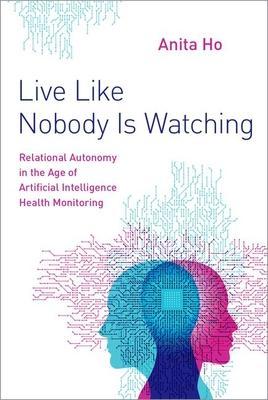Live Like Nobody Is Watching: Relational Autonomy in the Age of Artificial Intelligence Health Monitoring

Live Like Nobody Is Watching: Relational Autonomy in the Age of Artificial Intelligence Health Monitoring
Respect for patient autonomy and data privacy are generally accepted as foundational western bioethical values. Nonetheless, as our society embraces expanding forms of personal and health monitoring, particularly in the context of an aging population and the increasing prevalence of chronic diseases, questions abound about how artificial intelligence (AI) may change the way we define or understand what it means to live a free and healthy life. Who should have access to our health and recreational data and for what purpose? How can we find a balance between users' physical safety and their autonomy? Should we allow individuals to forgo continuous health monitoring, even if such monitoring may minimize injury risks and confer health and societal benefits? Would being continuously watched by connected devices ironically render patients more isolated and their data more exposed than ever? Drawing on different use cases of AI health monitoring, this book explores the socio-relational contexts that frame the promotion of AI health monitoring, as well as the potential consequences of such monitoring for people's autonomy. It argues that the evaluation, design, and implementation of AI health monitoring should be guided by a relational conception of autonomy, which addresses both people's capacity to exercise their agency and broader issues of power asymmetry and social justice. It explores how interpersonal and socio-systemic conditions shape the cultural meanings of personal responsibility, healthy living and aging, trust, and caregiving. These norms in turn structure the ethical space within which expectations regarding predictive analytics, risk tolerance, privacy, self-care, and trust relationships are expressed. Through an analysis of home health monitoring for older and disabled adults, direct-to-consumer health monitoring devices, and medication adherence
monitoring, this book proposes ethical strategies at both the professional and systemic levels that can help preserve and promote people's relational autonomy in the digital era.
PRP: 296.89 Lei
Acesta este Prețul Recomandat de Producător. Prețul de vânzare al produsului este afișat mai jos.
267.20Lei
267.20Lei
296.89 LeiLivrare in 2-4 saptamani
Descrierea produsului
Respect for patient autonomy and data privacy are generally accepted as foundational western bioethical values. Nonetheless, as our society embraces expanding forms of personal and health monitoring, particularly in the context of an aging population and the increasing prevalence of chronic diseases, questions abound about how artificial intelligence (AI) may change the way we define or understand what it means to live a free and healthy life. Who should have access to our health and recreational data and for what purpose? How can we find a balance between users' physical safety and their autonomy? Should we allow individuals to forgo continuous health monitoring, even if such monitoring may minimize injury risks and confer health and societal benefits? Would being continuously watched by connected devices ironically render patients more isolated and their data more exposed than ever? Drawing on different use cases of AI health monitoring, this book explores the socio-relational contexts that frame the promotion of AI health monitoring, as well as the potential consequences of such monitoring for people's autonomy. It argues that the evaluation, design, and implementation of AI health monitoring should be guided by a relational conception of autonomy, which addresses both people's capacity to exercise their agency and broader issues of power asymmetry and social justice. It explores how interpersonal and socio-systemic conditions shape the cultural meanings of personal responsibility, healthy living and aging, trust, and caregiving. These norms in turn structure the ethical space within which expectations regarding predictive analytics, risk tolerance, privacy, self-care, and trust relationships are expressed. Through an analysis of home health monitoring for older and disabled adults, direct-to-consumer health monitoring devices, and medication adherence
monitoring, this book proposes ethical strategies at both the professional and systemic levels that can help preserve and promote people's relational autonomy in the digital era.
Detaliile produsului










